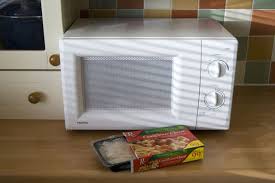I’ve long been aware that when it comes to understanding M, it really pays to understand how he interprets and sees the world. As for so many who live with chronic illness, M’s life is coloured by his EGID and multiple food allergies, and his view of “normal” is understandably skewed by his daily experiences.  The sad reality is that M has been living with the symptoms of EC for so long that he doesn’t always realise when something he’s feeling isn’t usual and we have often discovered a symptom months, or even years after it first started to happen. These problems are frequently something we could have helped resolve sooner and it is never clear just how long M has been coping with it on his own.
The sad reality is that M has been living with the symptoms of EC for so long that he doesn’t always realise when something he’s feeling isn’t usual and we have often discovered a symptom months, or even years after it first started to happen. These problems are frequently something we could have helped resolve sooner and it is never clear just how long M has been coping with it on his own.
My first experience of this was when M had his second set of scopes done 2 years ago. The nurse had started him on Klean-prep via a NG-tube and told M to tell her if he started to have reflux whilst it was pumping into him. Reflux was something we hadn’t struggled with since he was a baby and so he didn’t know what she meant. My explanation that he might feel nauseous or have some sickness come up into his mouth was met by a puzzled look, “…but Mummy, I get sick in my mouth all the time, why do I need to tell her if that happens?” He was genuinely perplexed by this request and I was made suddenly aware that there was an awful lot more going on with him than we really knew about.
Strangely, during our latest GOSH admission, that issue with reflux once again raised its ugly head and yet again, M more or less accepted it as being back in his life without complaint. When we first learned about the reflux, we worked hard to uncover when it was happening most and started him on a daily medicine to help treat the symptoms. We quickly found that it appeared to be triggered when he ate potatoes and raisins and by cutting those from his diet as well as the new medication, the reflux fortunately seemed to ease. The day after we started the potato food challenge in hospital, M complained that he was struggling with some reflux and explained in extremely graphic details to nurses, dietician and registrar what he felt. Whilst they made note of this problem, disappointingly they didn’t do anything to ease the discomfort he was in and delivered that line of “…he just needs to push through this…” that I quickly came to hate. Their dismissive attitude shown so clearly in front of M and obviously picked up on by him despite the illusion of him being absorbed by the TV whilst plugged into his headphones, meant that he stopped mentioning it and the medics assumed that it was a one-off event only.
 It wasn’t until they needed to start adding senna to the klean-prep to clear his system that we learned that M had not been 100% open about what was going on. The conversation had turned to whether he would willingly take the senna by mouth or if it was best pushed down his tube, when M casually commented that it didn’t really matter as he would end up tasting it either way. A little gentle prodding by his nurse soon revealed that the reflux had in fact been ongoing since the food challenges began and during that middle week of our stay, he had been experiencing the vile taste of the bowel prep in his mouth on a very regular basis.
It wasn’t until they needed to start adding senna to the klean-prep to clear his system that we learned that M had not been 100% open about what was going on. The conversation had turned to whether he would willingly take the senna by mouth or if it was best pushed down his tube, when M casually commented that it didn’t really matter as he would end up tasting it either way. A little gentle prodding by his nurse soon revealed that the reflux had in fact been ongoing since the food challenges began and during that middle week of our stay, he had been experiencing the vile taste of the bowel prep in his mouth on a very regular basis.
This story for me explains why it is so important for the medical teams to understand that every child is an individual and have very different levels of what they can accept and cope with, particularly when it comes to gastro conditions. In M’s case, this means that knowing how to phrase questions and interpret his answers is key to learning more about how he feels, especially when it comes to his coping strategies. For a number of years, Mike and I have repeatedly told our consultant that we firmly believe M lives with a level of pain that he has come to accept as his “normal”. When you see M running around with his friends or experience the whirlwind force of his personality, this can be difficult to believe and the fact that, between my reluctance to allow either child to stay home from school unless they’re dying and M’s determination to be in the midst of everything as much as possible, he has remarkably good school attendance for a child with a chronic illness, is in stark contrast to the picture we’ve tried to paint.
It’s at times like these that the words used with M, and by M, can reveal the most. At one of the many meetings I had with his consultant during our admission, she and I had talked about what the future holds for M. She told me that we might just have to accept that he would need to live with a level of pain that others might consider unacceptable, so that he has a more varied diet to choose from and my words that he already lived with enough pain seemed to fall on deaf ears. It was only when M met with the lovely GOSH gastro psychologist half-way through our stay that he was finally able to talk about how he feels each and every day.  She quickly established that M differentiates between a “pain” and an “ache”, which meant that unless he was asked the right question, M would proffer surprising answers.
She quickly established that M differentiates between a “pain” and an “ache”, which meant that unless he was asked the right question, M would proffer surprising answers.
Of course, the truth of the matter is, as we have repeatedly said, M has an almost constant ache in his tummy and bowels that he has just accepted as part of his reality. He doesn’t call that “pain” and, perhaps because of my unwillingness to unnecessarily dope him up on Calpol at the drop of hat, he doesn’t expect to have anything more than a hot water bottle or wheat bag to treat that discomfort. M calls that an “ache” and when asked to rate how that feels, he cheerily announced it was usually around a 4, the level where they would start to offer pain relief on ward. So when he was asked by the nursing team if he was suffering any “pain”, his answer was almost always a no except when he was experiencing a severe tummy cramp – his definition of what a “pain” was. The nurses had been struggling to understand how he could be rating his pain at an 8 or 9 at one point, only to say less than 5 minutes later that he had no pain at all before they’d even had time to give him any pain relief. This insight into the workings of M’s mind was invaluable as it meant that finally we all – doctors, parents and M himself – were singing from the same hymn sheet and receiving accurate feedback from M about how he was feeling; and all because we now understood the power in a word.



































